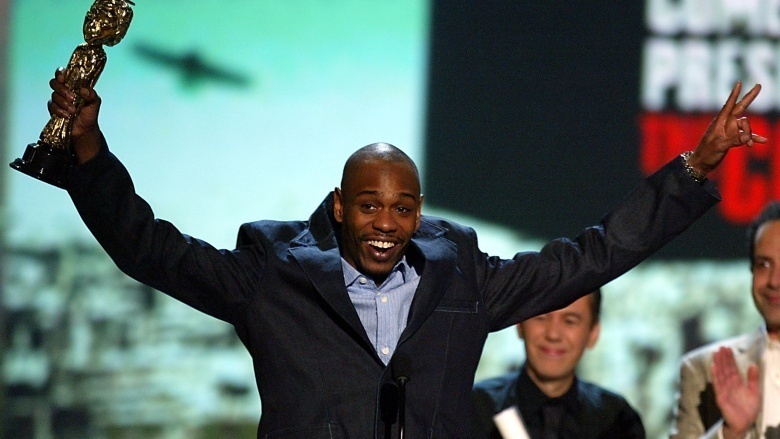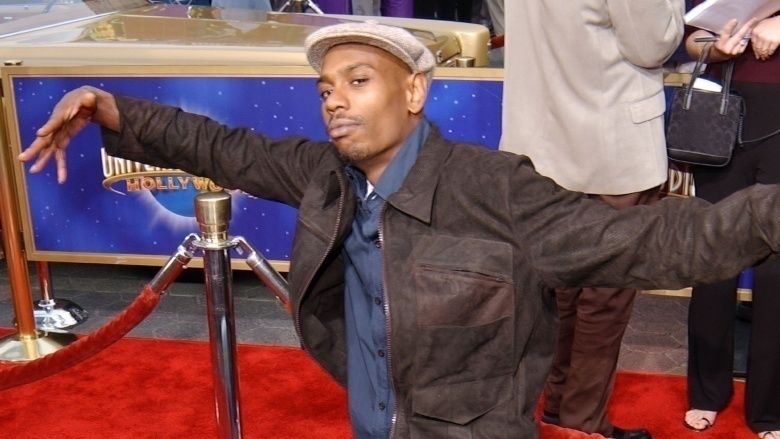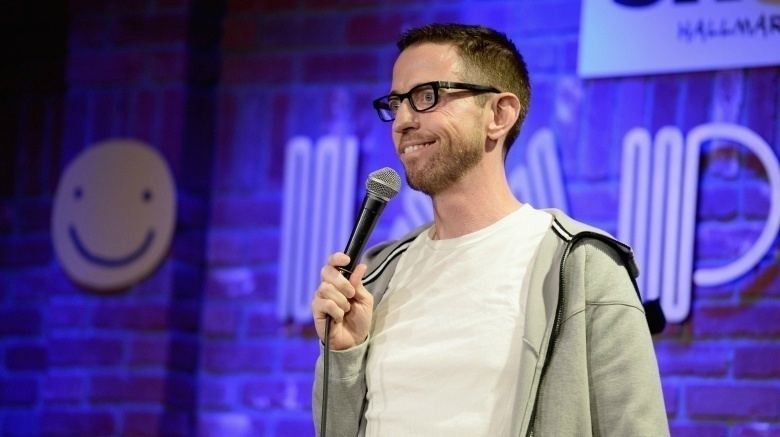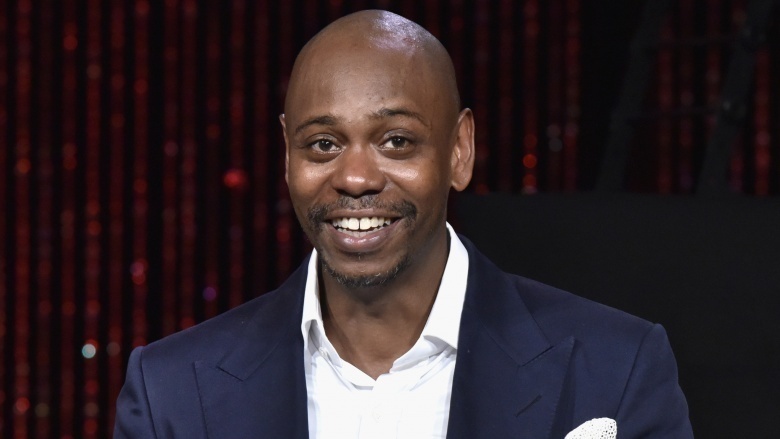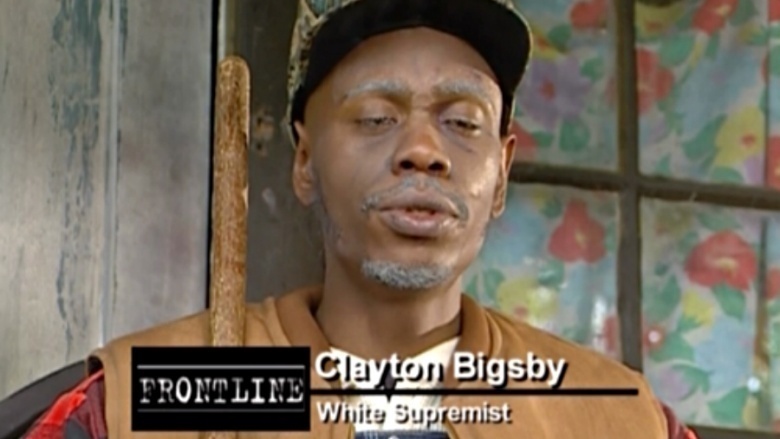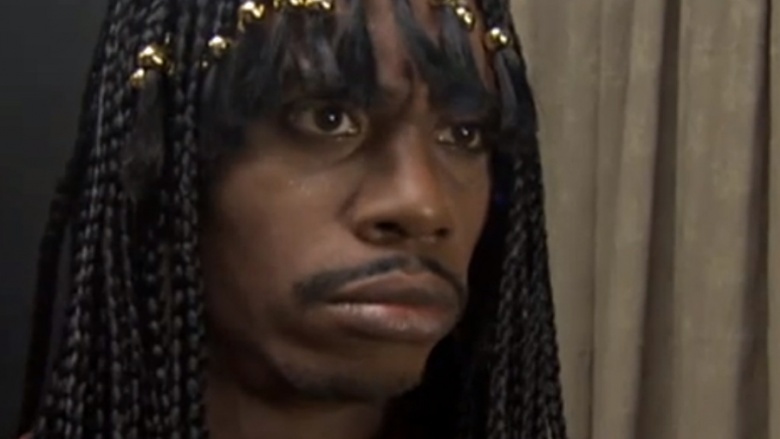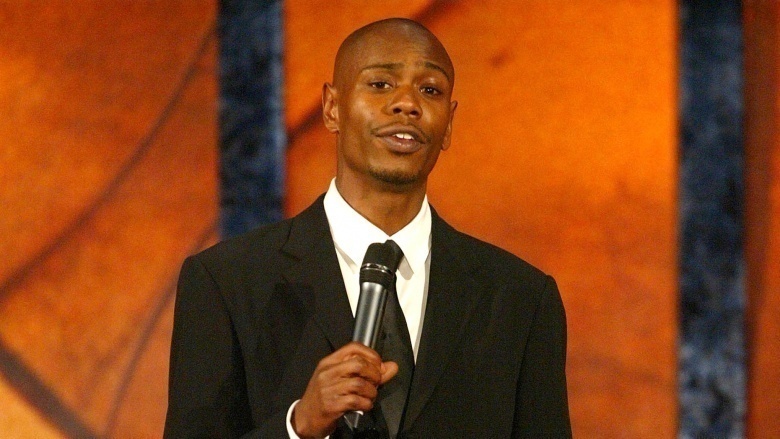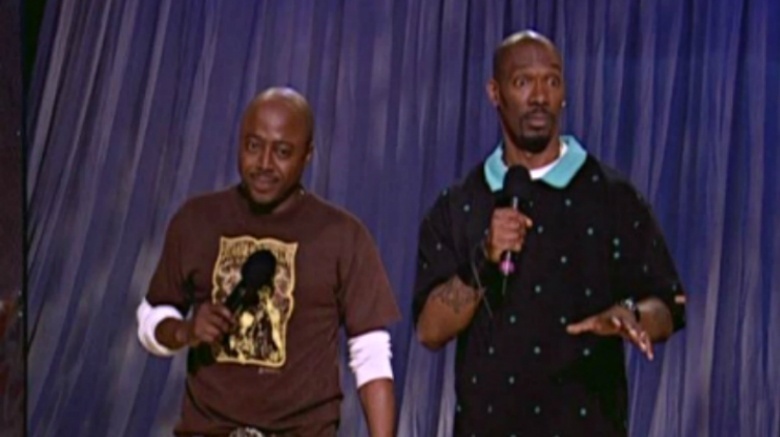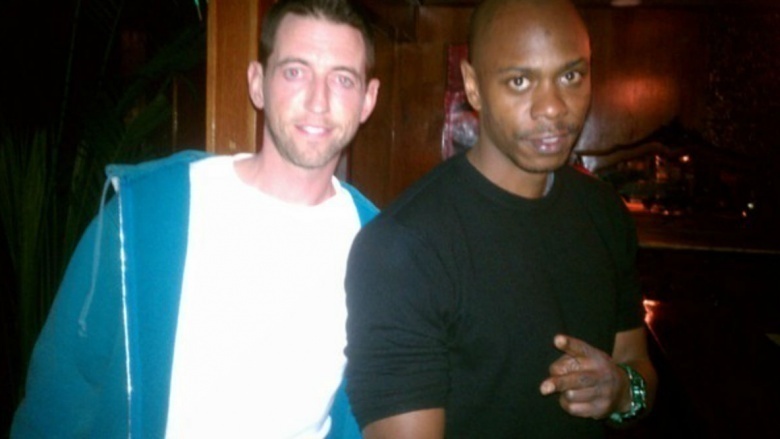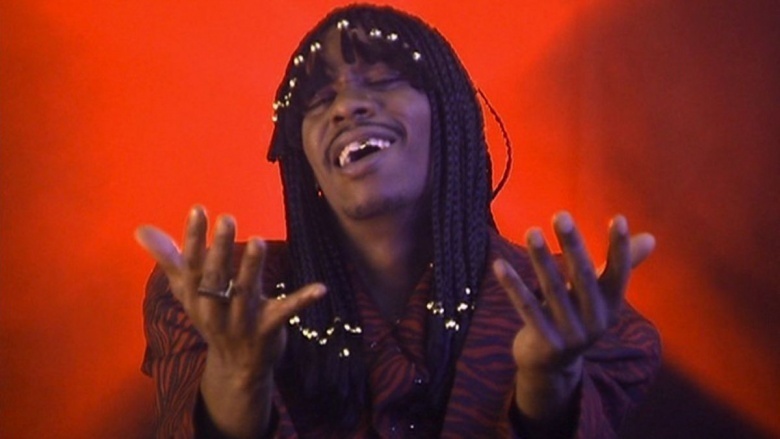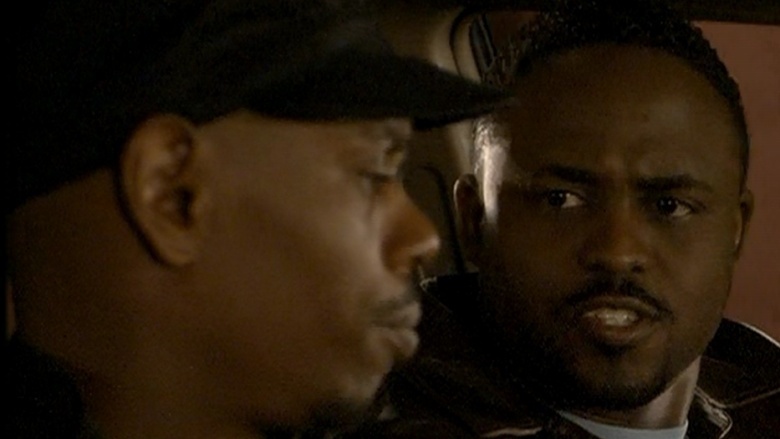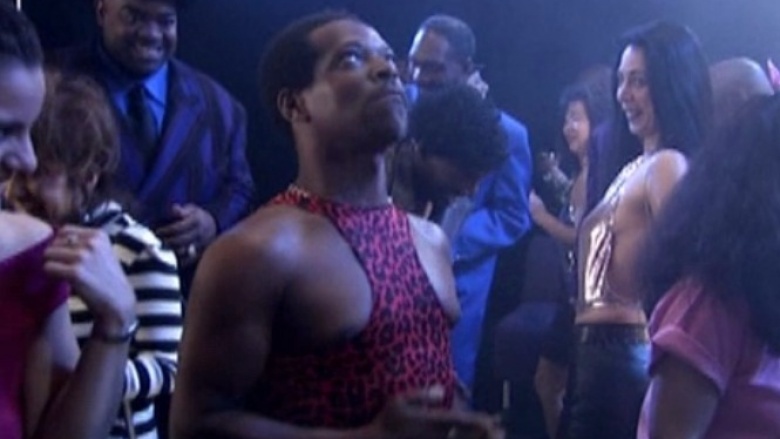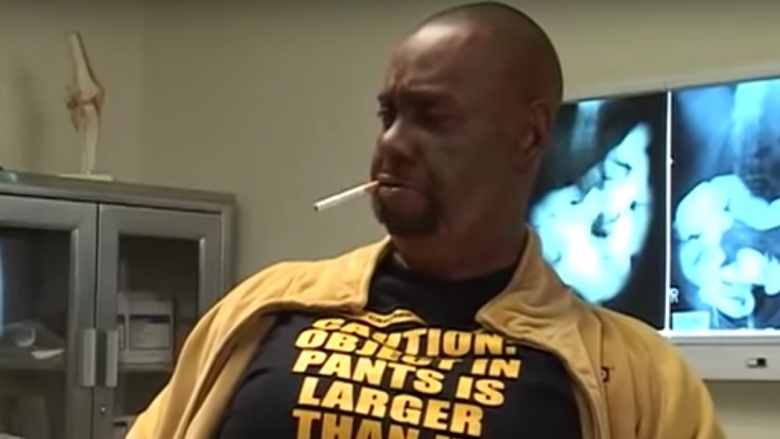The Untold Truth Of Chappelle's Show
Neither Chappelle nor Brennan had experience with sketch comedy, so they turned to Saturday Night Live for ideas about pacing and variety. What they came up with became known as "the most DIY show in the history of television" due to their hands-on work ethic and SNL prep work.
Here's a friendly piece of advice for anyone who sees Dave Chappelle out and about: don't mention Rick James. There's a decent chance he'll remind you what the five fingers said to the face. Although his short-lived Comedy Central series, Chappelle's Show, became an instant hit and the best-selling TV show on DVD, Chappelle later said fans' constant use of the show's most ubiquitous catchphrase basically ruined the whole thing. Check out the untold truth of Chappelle's Show.
Before the show, Chappelle worked the stand-up scene
Once upon a time, Dave Chappelle wasn't quite so well-known. The budding actor and stand-up comedian regularly performed on the night club circuit, but he faced a few devastating setbacks along the way: the audience at the Apollo booed him during Amateur Night; he lost to comic Lester Barrie three times on Star Search; and two of his attempts to break into TV didn't take shape–partly due to a fight with FOX over their desire to "whitewash" the cast of his proposed sitcom, Dave Chappelle. When his father passed away in 1998, he reportedly considered quitting the biz.
Time to start baking
In 1996, art imitated Chappelle's life when he played a raunchy house comedian in The Nutty Professor. At the time, he was steadily working the stage, and just as his Hollywood career began to gain traction, he met teenage funnyman Neal Brennan–then a student and a bouncer at New York's Boston Comedy Club. Brennan often shared his wit with Chappelle, and the two collaborated on the script for Half Baked, a stoner cult classic. But the movie wasn't a box office success, so they parted ways for several years before re-teaming in 2003 for Chappelle's Show.
How the show was born
The interstitials on Chappelle's Show—where Dave riffs or hangs out with musicians—were inspired by Hugh Hefner's casual 1960s talk show Playboy After Dark. He saw some old episodes of the series in 2002 and got the idea to build a show around them, calling in his friend and writing partner Neal Brennan to help him develop it. Neither had much experience with sketch comedy, but they learned how to write sketches by reading books about Saturday Night Live. Once they had a clear idea, Chappelle and Brennan pitched the show to HBO, where it was turned down. But Comedy Central was interested and greenlighted a full series, based on a pitch of two sketches. (One of them was "Popcopy," which later turned up on Chappelle's Show.)
Clayton Bigsby came from a surprising source
Chappelle and Brennan took a big risk when they included the character of Clayton Bigsby in the pilot. Bigsby is a blind white supremacist who doesnt know he's black and spouts racist, NSFW verbiage. Brennan said Comedy Central execs were afraid the sketch would give early audiences a false read on the show. "That was the most vicious fight we ever had with them," he said. "Because we were like, 'This is exactly what the show is.'" Brennan later revealed that Chappelle based Bigsby on his own grandfather.
Chappelle's Rick James impression was too good
Chappelle's impersonation of R&B legend Rick James became so instantly iconic that the comedian was rumored to be working on a full-length biopic. But he began hearing the character's catchphrases thrown back at him–often during inopportune moments. It happened during an infamous stand-up performance just weeks after the season 2 finale aired, prompting Chappelle to blast the crowd for their "stupid" behavior. He considered his stand-up to be the central element of his career and told the audience, "This show is ruining my life."
Chappelle jumped his own ship
Comedy Central offered Chappelle a whopping $50 million to make seasons 3 and 4 of Chappelle's Show, and while he initially accepted and began production, it didn't last long. One of the show's most controversial sketches made him feel "socially irresponsible" after he saw white crew members laughing at him instead of with him. "It was the first time I had ever gotten a laugh that I was uncomfortable with," he said. After that, he knew he was headed for the exit door "ahead of schedule."
Rumors abounded when Chappelle quickly hopped a flight to South Africa, and only some were true. While he did wait to tell his wife until after he was out of the country, he wasn't trying to escape his fame. He also insists drugs weren't involved, and he didn't check into a mental health facility, either. He just sought a "quiet place" away from the opportunists in his life.
The 'lost' episodes
After Chappelle departed, two of the show's regular cast members, Charlie Murphy and Donnell Rawlings, stepped in to co-host the final three episodes. Comedy Central ultimately opted to air the so-called "lost episodes"–including the sketch that caused Chappelle to quit–and also released them on DVD. Of course, Chappelle opposed, calling it a "bully move."
The aftermath
Chappelle and Brennan's friendship was severely damaged after the show's demise, and it took years to repair what was broken between them. But the two reconnected years later when Brennan dropped by one of Chappelle's intimate stand-up shows. Although they've agreed to never work together again, they remain friends. "I think there's part of both us that holds each other very personally responsible for our part of it," Brennan said. "But another part of us that sees the whole thing as very circumstantial."
The Rick James sketch made life miserable for a politician
Chappelle's hilarious Rick James impression was among the most memorable of the show's many high points, but it had its drawbacks—both for Chappelle, who quickly tired of people shouting "I'm Rick James, bitch!" at him, and for a politician inconveniently named Rick James. His 2005 campaign for city council in Hattiesburg, Mississippi was plagued with the theft and vandalism of dozens of his campaign signs, some of which were spotted as far as 100 miles away. "Young children on bikes scream, 'I'm Rick James, bitch!' as we drive by in our car with our 'Rick James' car signs," James' wife Diane lamented to Fox News. "People even drive by our home and scream 'Super Freak.'"
Paul Mooney's improv led to a classic sketch
During Chappelle's Show's first two seasons, legendary comedian Paul Mooney played an African-American version of Nostradamus named "Negrodamus," and also hosted a segment called "Ask a Black Dude." Arguably the most memorable question posed to Mooney was "Why do white people like Wayne Brady?" Mooney's improvised, off-the-cuff response: "White people love Wayne Brady because Wayne Brady makes Bryant Gumbel look like Malcolm X." Months later, Brady—talk show host, game show host, singer, and improviser extraordinaire—approached some members of the Chappelle's Show staff at the NAACP Image Awards and bought them a round of drinks. Brady admitted the sketch had deeply hurt his feelings, and Chappelle felt bad—so he called Brady to collaborate, leading to Brady's appearance in an episode-length Training Day parody in which he played "himself" as an unhinged psychopath.
Who's the guy doing the Robot?
His name is Karl Lake, and he was a set dresser for the show. In a first season episode, Chappelle asked him to appear in a crowd scene and do something funny. Naturally, Lake did the Robot. It was so well received that for the second season, writers made sure to find a place for Lake to do a repeat performance at some point in every episode. Lake, whose subsequent credits include work in the art department for Joel Schumacher's Twelve, remains a fan favorite—there's even a Facebook page in honor of "Robot Dancing Man from Chappelle's Show."
Many sketches remain unaired
Before Chappelle abruptly walked away from the show in its third season and never looked back, quite a few sketches had already been committed to tape. Comedy Central took some of those bits and compiled them into "The Lost Episodes," which aired in the summer of 2006. The rest have surfaced as DVD extras or bootlegs online, including a Super Size Me parody called "Maximize Me," an R-rated sequel to Daddy Day Care starring Charlie Murphy, and a few more "Hip-Hop Newsbreaks" in which Chappelle's news anchor character Chuck Taylor awkwardly states the lyrics to rap songs as if they were news, such as Dr. Dre's "Still D.R.E." and Das Efx's "They Want EFX."
Even some major musical segments didn't make it onto the air (but they've since been leaked online). Among them are the Beastie Boys performing their 1986 classic "The New Style," John Legend doing his breakthrough hit "Ordinary People" with comic interruptions from Chappelle, and Dead Prez doing a full version of "Hip-Hop," a clip of which served as Chappelle's intro music when he walked onto the stage at the top of each show.
